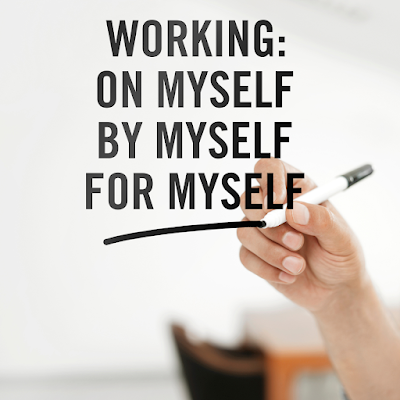Self-discovery is a transformative journey that leads individuals to a deeper understanding of themselves, their values, and their purpose in life. In this blog post, we will explore the essence of self-discovery, its significance, and how to initiate this powerful process.
Self-discovery is the ongoing process of exploring and understanding oneself on a profound level. It involves the process of gaining insight into one's own identity, values, beliefs, strengths, weaknesses, and overall understanding of oneself. This results in introspection, reflection, and exploration of one's thoughts, emotions, and experiences to uncover the authentic essence of who they are. The journey of self-discovery is dynamic and ongoing, as individuals continually learn more about themselves throughout their lives.
This introspective process often entails questioning assumptions, beliefs, and societal expectations to determine what resonates with one's true nature. It goes beyond surface-level self-awareness and delves into the deeper layers of one's personality, aspirations, and motivations.
Self-discovery is a transformative and empowering journey that enables individuals to make more informed decisions, set meaningful goals, and live authentically. It plays a crucial role in personal development, fostering a deeper connection with oneself and contributing to a more fulfilling and purposeful life.
This introspective journey allows individuals to connect with their authentic selves, leading to personal growth and a more fulfilling life.
Self-discovery and self-awareness are related concepts, but they have distinct focuses and implications:
1. Self-Discovery:
• Definition: Self-discovery involves the process of exploring and understanding oneself on a profound level. It encompasses uncovering personal values, passions, strengths, weaknesses, and one's authentic identity.
• Scope: The scope of self-discovery is broad, involving a continuous exploration of different aspects of one's personality, experiences, and aspirations.
• Outcome: The outcome of self-discovery is often a deeper understanding of one's purpose, personal growth, and a more authentic and fulfilling life.
2. Self-Awareness:
• Definition: Self-awareness refers to the conscious recognition and understanding of one's own thoughts, emotions, behaviors, and motivations in the present moment.
• Focus: Self-awareness primarily focuses on being mindful of one's current mental and emotional state. It involves recognizing patterns, habits, and reactions as they occur.
• Outcome: The outcome of self-awareness is often an increased ability to regulate emotions, make better decisions, and understand how one's actions impact themselves and others.
While self-discovery and self-awareness are interconnected, they differ in focus. Self-awareness involves recognizing your thoughts, emotions, and behaviors in the present moment, while self-discovery is a broader exploration that encompasses uncovering hidden aspects and potential within yourself.
Self-discovery is a more encompassing process of exploring various facets of one's identity and life, self-awareness is more immediate and involves being conscious of one's thoughts and actions in the present. Both are valuable for personal development, and they complement each other in fostering a deeper understanding of oneself. Self-discovery provides context and depth, while self-awareness offers real-time insights and mindfulness.
How to Start Self-Discovery: Embarking on the journey of self-discovery requires a willingness to explore your inner self. To begin, set aside time for introspection. Journaling, meditation, and mindfulness practices can be valuable tools to quiet external influences and focus on your thoughts and feelings.
Why is Self-Discovery Important? Self-discovery is essential for personal development and overall well-being. By understanding who you are, you can make more informed decisions, set meaningful goals, and cultivate healthier relationships. It provides a sense of purpose and direction, leading to a more fulfilling and authentic life.
Examples of Self-Discovery: Self-discovery can manifest in various ways. It might involve realizing a hidden talent, overcoming a fear, or finding a new passion. For example, someone may discover their love for painting, uncovering a creative outlet that brings them immense joy and fulfillment.
Self-Discovery Techniques:
1. Journaling: Regularly writing down your thoughts and reflections can help you identify patterns, emotions, and aspirations.
2. Meditation and Mindfulness: Practices that focus on the present moment can bring clarity and a deeper understanding of oneself.
3. Seeking New Experiences: Stepping out of your comfort zone and trying new activities can reveal hidden aspects of your personality and preferences.
How Important is Self-Discovery? Self-discovery is crucial for personal growth and a fulfilling life. It empowers individuals to make authentic choices aligned with their values, leading to greater happiness and satisfaction. The process helps navigate challenges, build resilience, and foster a positive self-image.
What are Some Self-Discovery Questions?
1. What are my core values?
2. What activities bring me joy and fulfillment?
3. What are my strengths and weaknesses?
4. What goals and aspirations do I have for the future?
5. What fears or limiting beliefs hold me back?
Conclusion: Embarking on the journey of self-discovery is a powerful and transformative endeavor. By investing time and effort into understanding yourself, you pave the way for personal growth, resilience, and a more authentic and fulfilling life. Embrace the process, ask yourself the important questions, and watch as you uncover the incredible depths of your true self.

Comments
Post a Comment